Although russian troops have approached Myrnohrad, and the city suffers from shelling, the local publication Ridne Misto does not stop its work. The editors were forced to leave Myrnohrad but continue to publish the newspaper and maintain contact with their readers, demonstrating incredible resilience and dedication to their work in wartime conditions.
“They were leaving to the sound of shelling”
In August 2024, almost all the townspeople and the administration left Myrnohrad. The editorial staff of the Ridne Misto newspaper also left the city. Chief editor Maksym Zabielia and his deputy Nonna Kyrychenko held on until the last. We left on August 31 with volunteers.
“We, four newspapermen from Myrnohrad, currently live in different cities of Ukraine – Odesa, Dnipro, Poltava, and Kyiv. As we were leaving, the explosions were no longer just distant sounds. These were regular arrivals, especially in the northern part of the city,” says Maksym Zabielia.
According to him, it was already impossible to sleep due to constant explosions and shaking of buildings.
“Even if the flight happened three streets away, it is very audible. The house is shaking, the plaster is falling, dishes are clattering and falling, windows are flying out,” the editor describes the situation in the city in August. “You can’t live in such conditions for a long time; I wouldn’t wish that on anyone. Emotionally, it is very difficult.”
It is not known what is currently happening with the housing of Ridne Misto employees. As of the time of departure, the editor’s apartment was severely damaged, and his mother’s apartment burned to the ground.
“Leaving Myrnohrad, we all mentally prepared for the fact that the most we can hope for is to save our lives,” says Maksym Zabielia. “Well, maybe some of the things. It was important to my grandmother to keep a family photo album….”
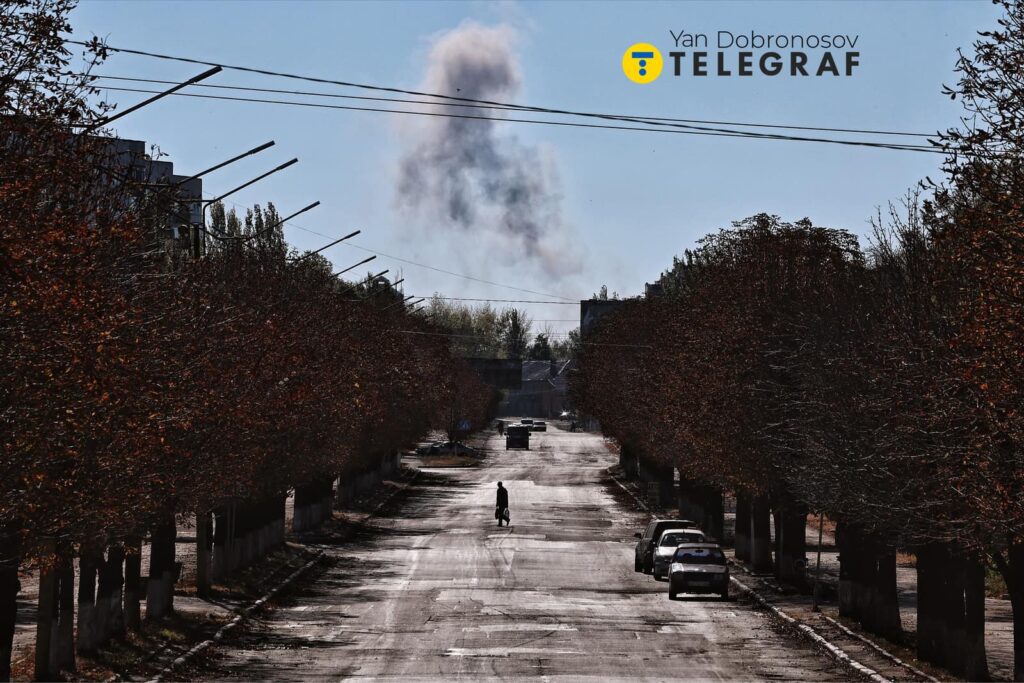
The editor says that the evacuation of journalists and their families took place in difficult conditions. It was especially difficult to take out elderly relatives.
“My mother, Rita Ivanovna, has a disability of the second group. Grandmother Oleksandra Pavlivna is 84 years old. My grandmother is not very mobile, and actually, I took my mother out with her things even earlier, but she constantly returned to the city because you cannot leave your grandmother without supervision,” the editor recalls.
Currently, Maksym Zabielia‘s relatives live in Odesa. It is no longer possible to come to Myrnohrad – even to cover the situation. Even volunteers don’t go there.
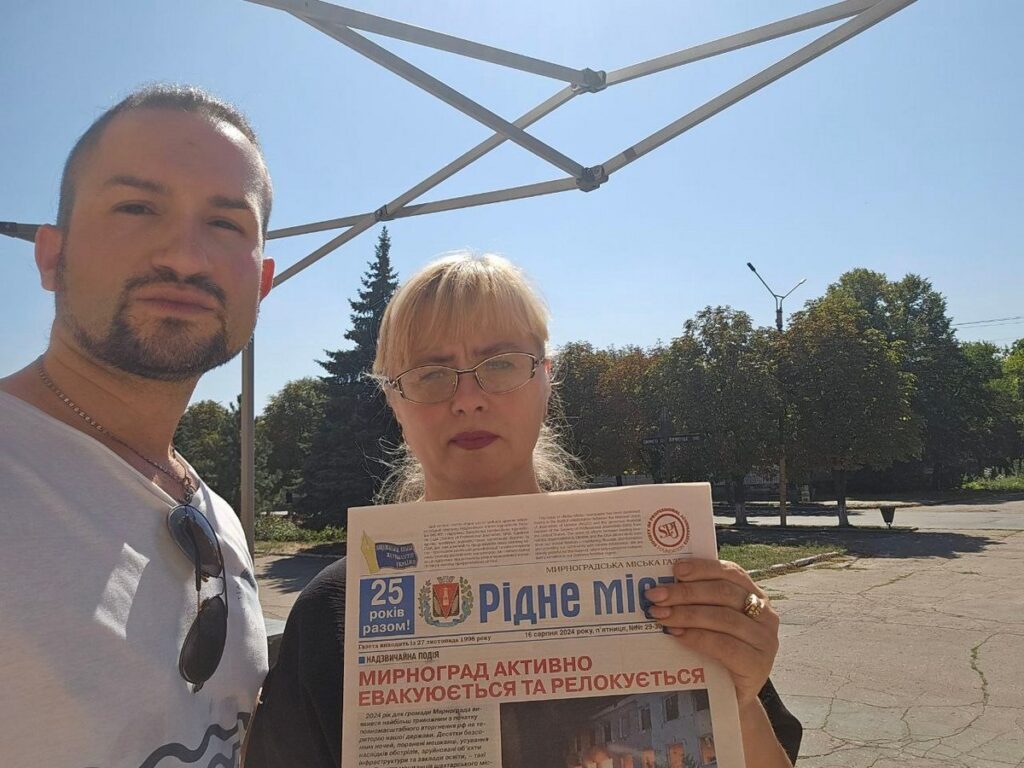
“Myrnohrad is now 3-5 km from the enemy. There is no water, gas, or electricity here,” says photojournalist Yan Dobronosov, who visited the city the other day. “That’s why those who stay cook outside, on home-made stoves. The sounds of explosions are constantly heard. You can constantly hear how drones are shot down, of which there are already a lot here, unfortunately. Saw one working shop. Frankly, even working is already very dangerous.”
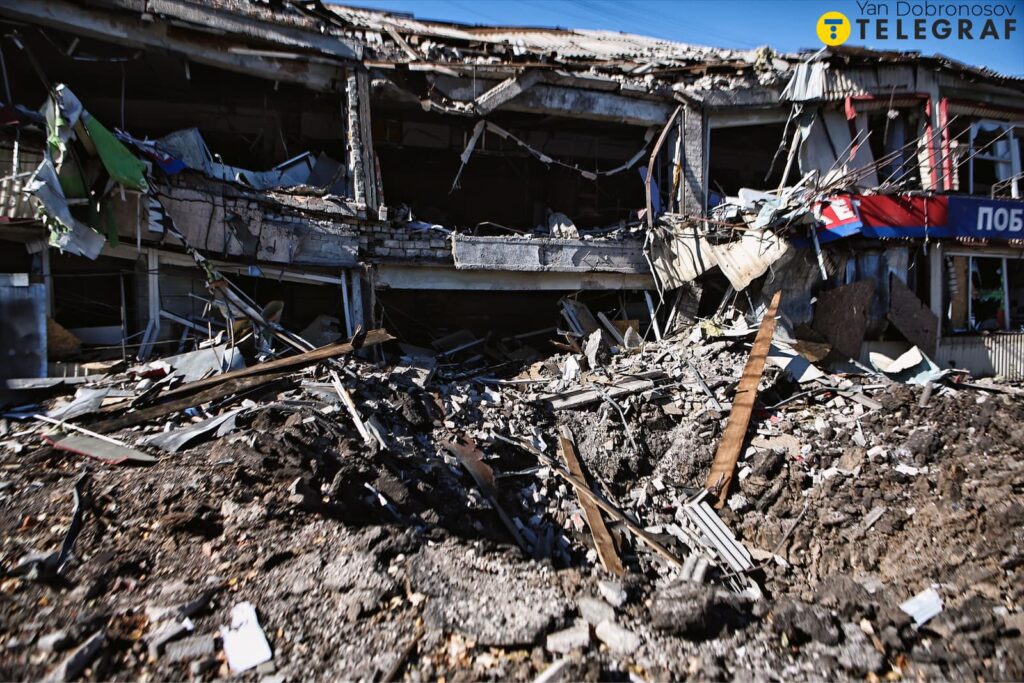
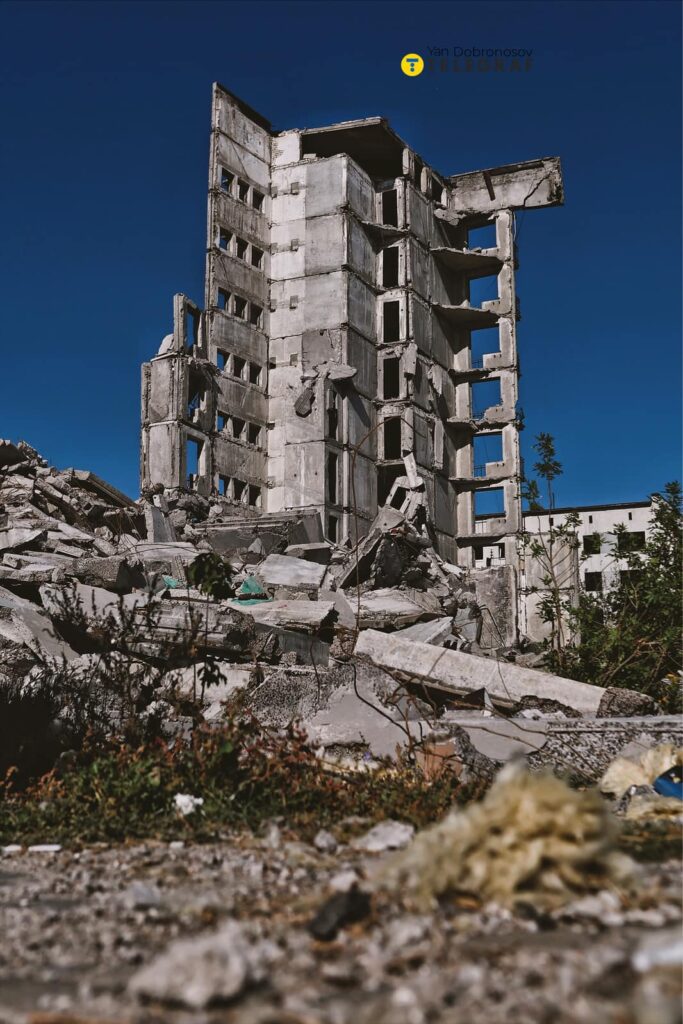
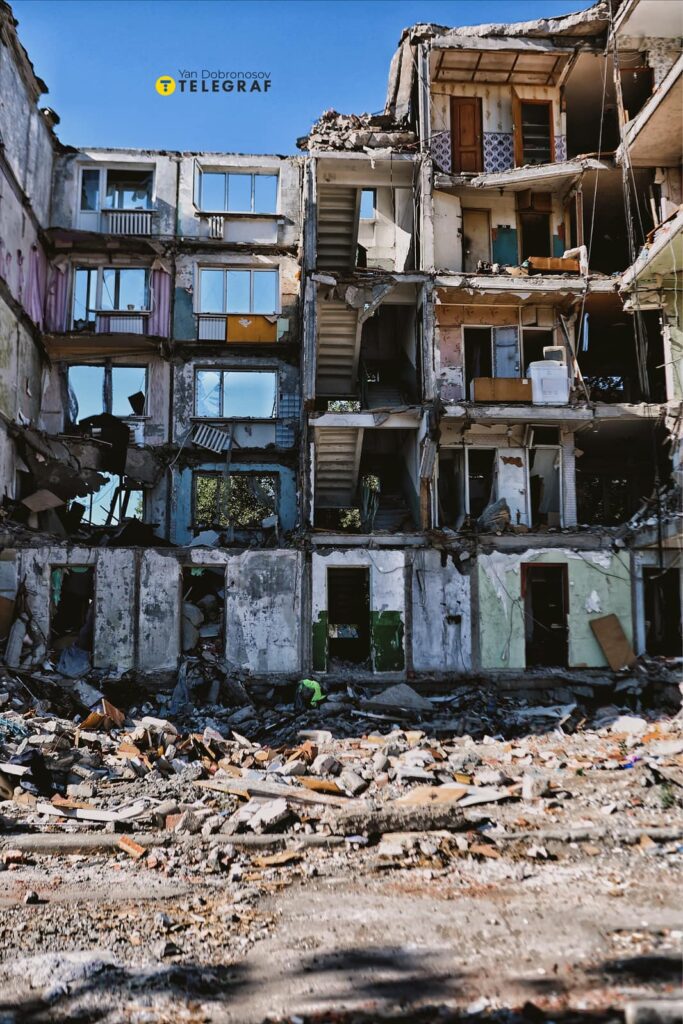
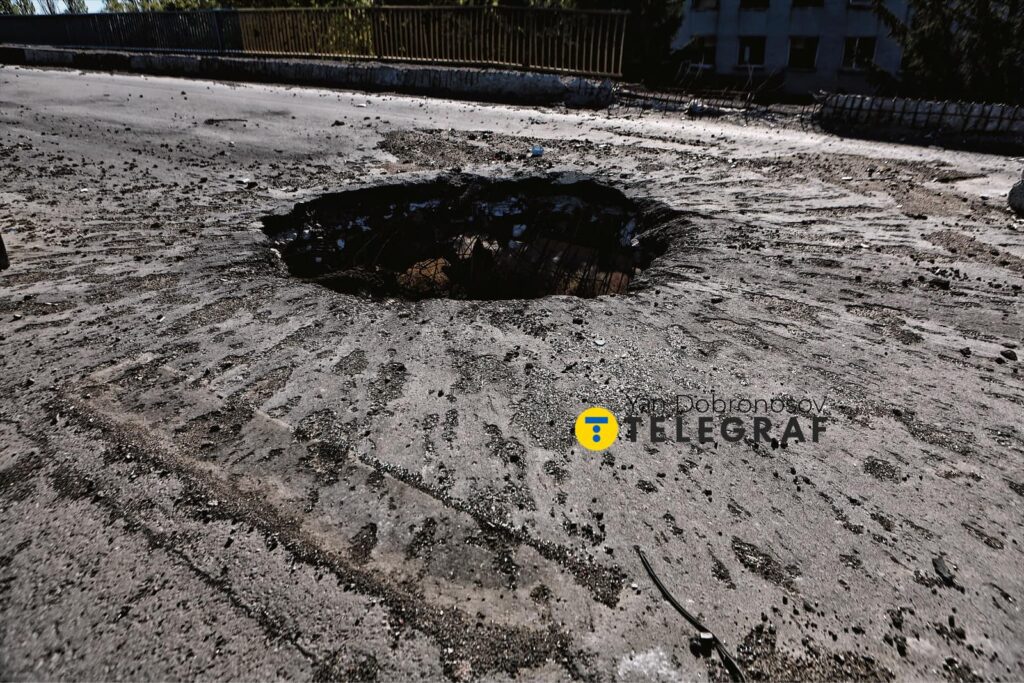
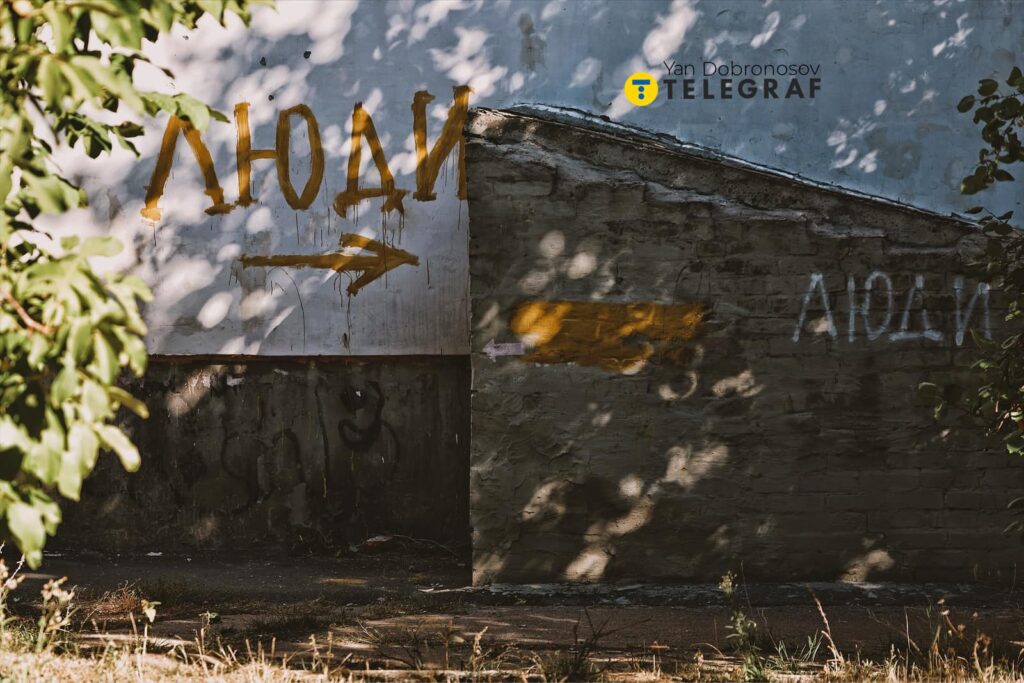
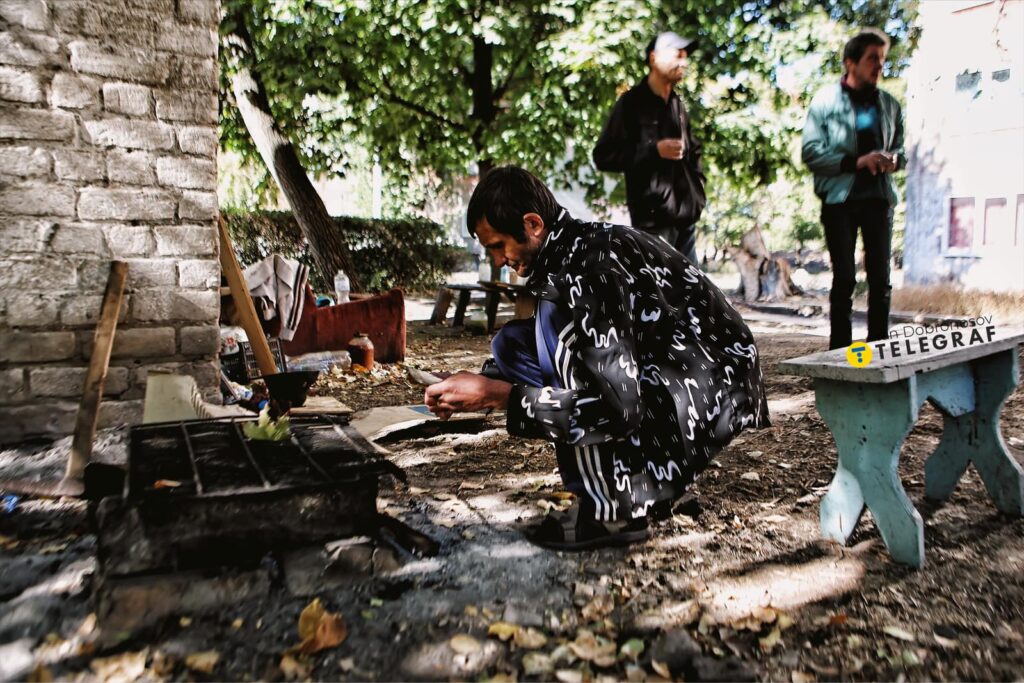
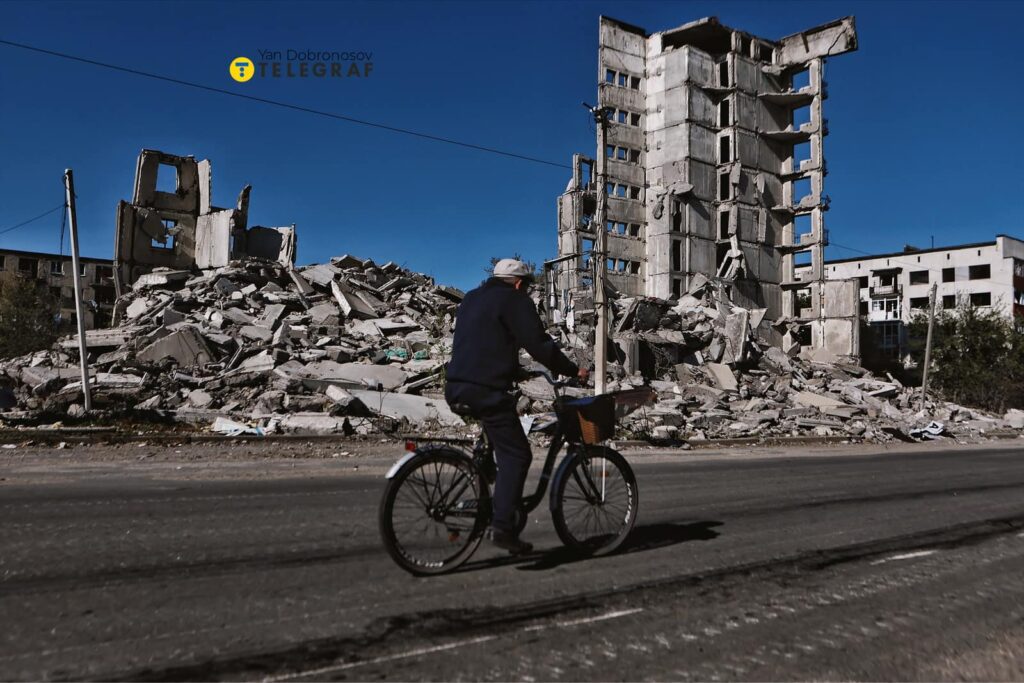
“In spite of everything, we leave on schedule”
The newsroom of Ridne Misto lost its office, audience, and journalists – a normal life and peace, but despite all this, the newspaper continues to be published according to schedule, albeit in a shortened format. The newsroom works remotely, receiving information from those who remain in the city in various ways (mobile communication is practically lost).
“We are also in constant contact with representatives of the Myrnohrad military administration. This allows us to understand what is happening in our hometown,” says the editor-in-chief.
Nonna Kyrychenko, deputy editor-in-chief, says that the journalists are convinced that despite the evacuation, the newspaper retains its importance for the residents of the community.
“For us, each issue of our newspaper is a connection with life, a kind of anchor that keeps our vitality. And it is also very important for our readers,” says the journalist. “We are “on the same page” with the readers, we know what to talk to them about, we have the same burning questions, so we are “of the same blood” with them, as they say….”
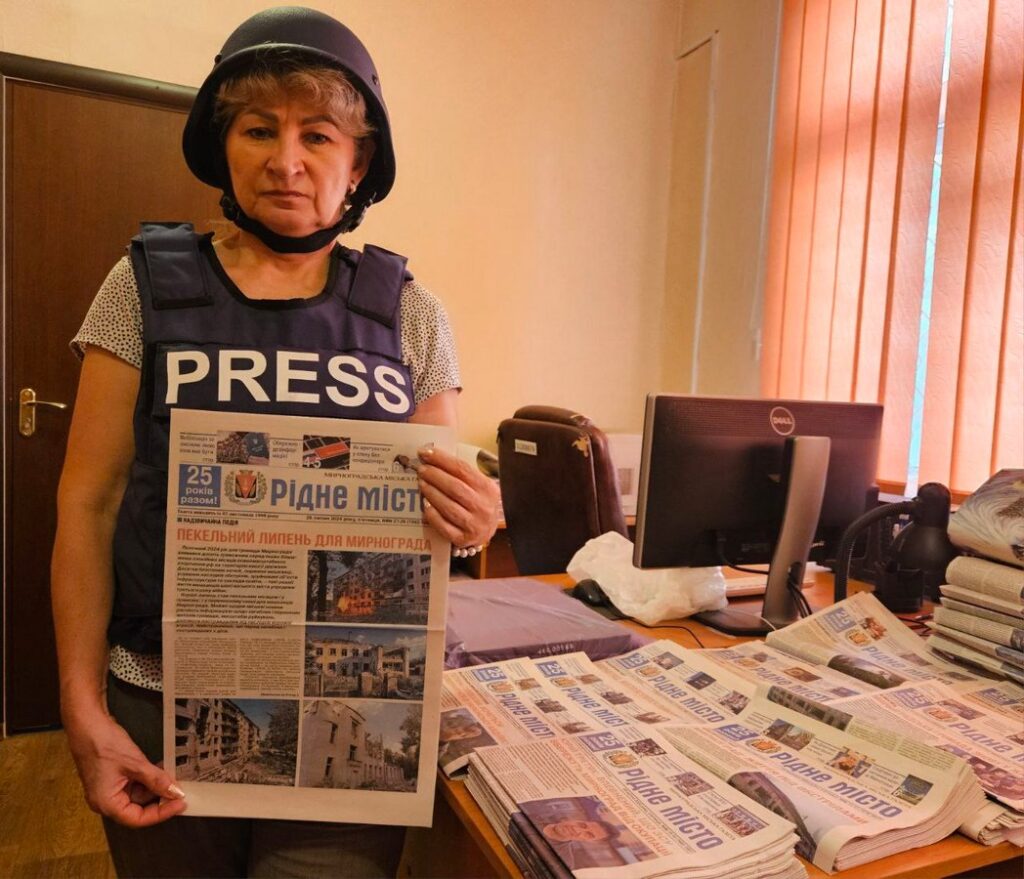
Currently, Ukrposhta still delivers the newspaper to some settlements of the Pokrovskyi District. In addition, it is received by residents of Myrnohrad who have left the city.
Hubs, where displaced people from Myrnohrad settled compactly, are located in the Dnipropetrovsk Region, Kirovohrad Region, Kremenchuk and Reshetylivka in the Poltava Region. The other day, Maksym Zabielia visited some of them, arranging to deliver a copy of the newspaper there and to distribute copies among the residents of Myrnohrad.
“I met a lot of regular readers. There are many elderly people among them,” the editor said. “When they received a fresh copy of the newspaper, they did not hold back their tears. They left home a few weeks ago and have not yet gotten used to the status of displaced people, and news from their native home means a lot to them. When we were last in Myrnohrad, they asked if there was any hope of returning… People, like everywhere, hope to receive good news… We all want confirmation that everything will be fine, good.”
Tetiana Sherepa, a resident of Myrnohrad who found shelter in a shelter in Tsarychanka, Dnipropetrovsk Region, says that in a peaceful life, she has not been separated from her Ridne Misto for many years. With the beginning of the war, the post office began to work worse, but the newspaper was delivered, albeit late.
“Of course, I’m used to my newspaper; I love it,” says Tetiana. “You know, sometimes you read Facebook, and you don’t want to live. And the newspaper always inspires me. I have been evacuated for more than a month. And my children and grandchildren are here. We are all together. But often such longing covers! I received our newspaper here, and tears rolled down my face….”
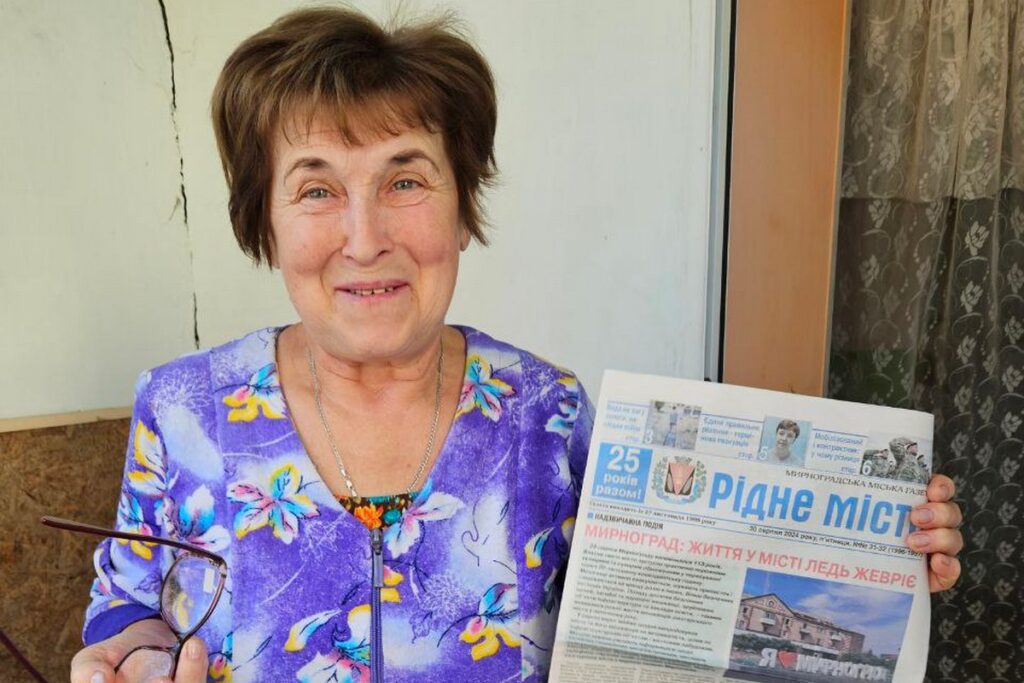
Another resident of the Tsarychanka shelter, Halyna (she asked not to give her last name), says that, above all, she dreams of reading in Ridne Misto that the war is finally over.
“I always read the newspaper from the first page to the last. I always solved scanwords… It was so hard for me to leave Myrnohrad… I lived there all my life. When a fresh issue of Ridne Misto was brought to me this morning, it was… such a joy!” says the woman.
But 97-year-old Petro Rohach says that he has been reading Ridne Misto from the first issue for 25 years.
“When he was younger, he even helped distribute the newspaper,” the man recalls.
In addition to Ridne Misto, he also subscribed to other publications. When they stopped coming in February 2022, Petro Dmytrovych became discouraged and even stopped looking into the mailbox. Suddenly, the postwoman called and asked why he didn’t pick up Ridne Misto from there.
“I went to the mailbox – and there are three issues of this newspaper! He could not believe that with the beginning of the war, Kyiv newspapers stopped publication, and our local edition found the strength to work. That’s why I’m glad that despite the war, our newspaper is published, and people are able to read it. And that today she found me in the Dnipropetrovsk Region,” says Petro Dmytrovych.
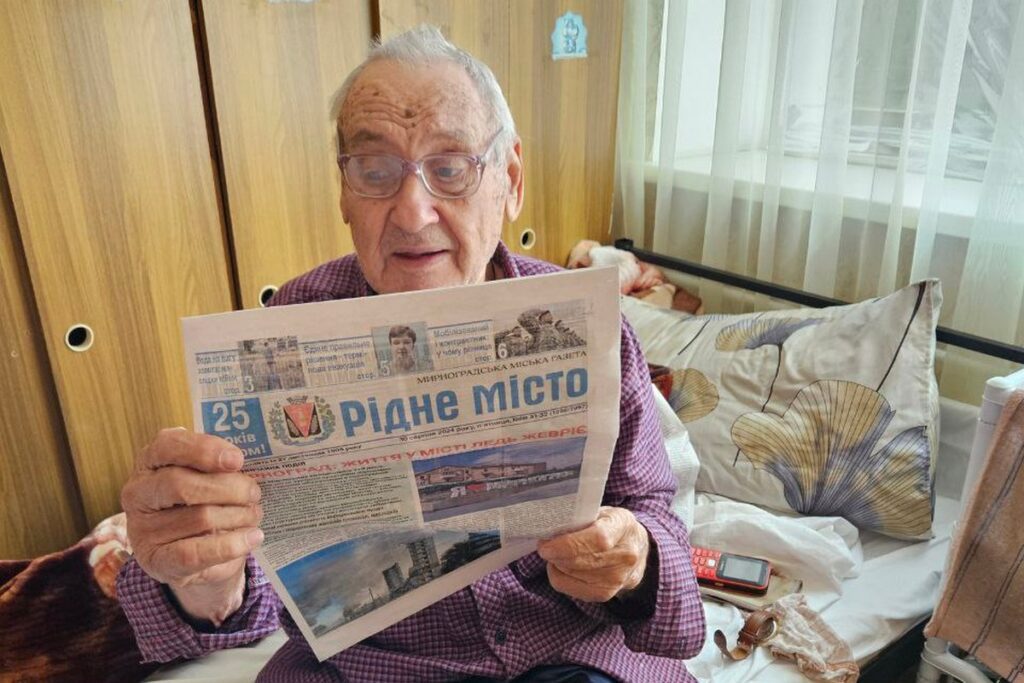
Liudmyla Samusenko, who currently lives in a shelter in Mykhailivka, Dnipropetrovsk Region, says that if it were not for the terrible danger, she would not have left Myrnohrad for anything.
“When I received the issue of Ridne Misto here, I couldn’t even believe my eyes,” says Liudmyla. “I had such emotions! Social workers brought the newspaper. They help us here, organize our lives, and bring medicine and food from the city. Conditions are normal. And the main thing is that they don’t shoot….”
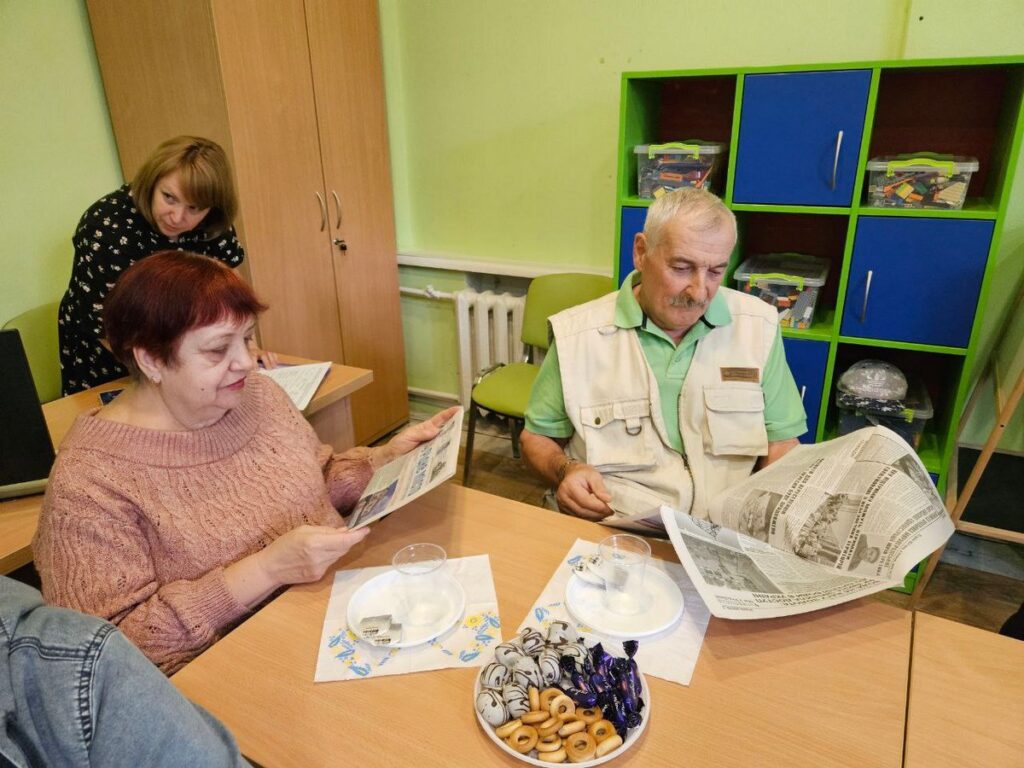
“We will be able to last until the end of the year”
Currently, the newspaper has remaining funds for printing, but money for business trips is completely absent. In addition, journalists need to rent apartments, which is also a considerable expense.
“We plan that we will be able to last in this mode until the end of the year,” says Maksym Zabielia. “However, without constant donor support, the future of the newspaper remains uncertain. From the end of the year, if we don’t get the funding, then… we will still look at different options to continue the work.”
Despite all the difficulties, the journalists of Ridne Misto do not lose hope and continue their work.
“Unfortunately, we do not have a systematic state program that could support the local press, in particular, the front-line press,” says the editor. “But talks about this are ongoing, and the National Union of Journalists of Ukraine is doing, in my opinion, an extraordinary effort to raise this issue both at the state and international levels. Many thanks, in particular, to the leadership of the Union – NUJU President Sergiy Tomilenko and first secretary Lina Kushch. They literally live with the problems of front-line newsrooms, and if we did not feel this effective support, there would be no talk of our survival a long time ago.”
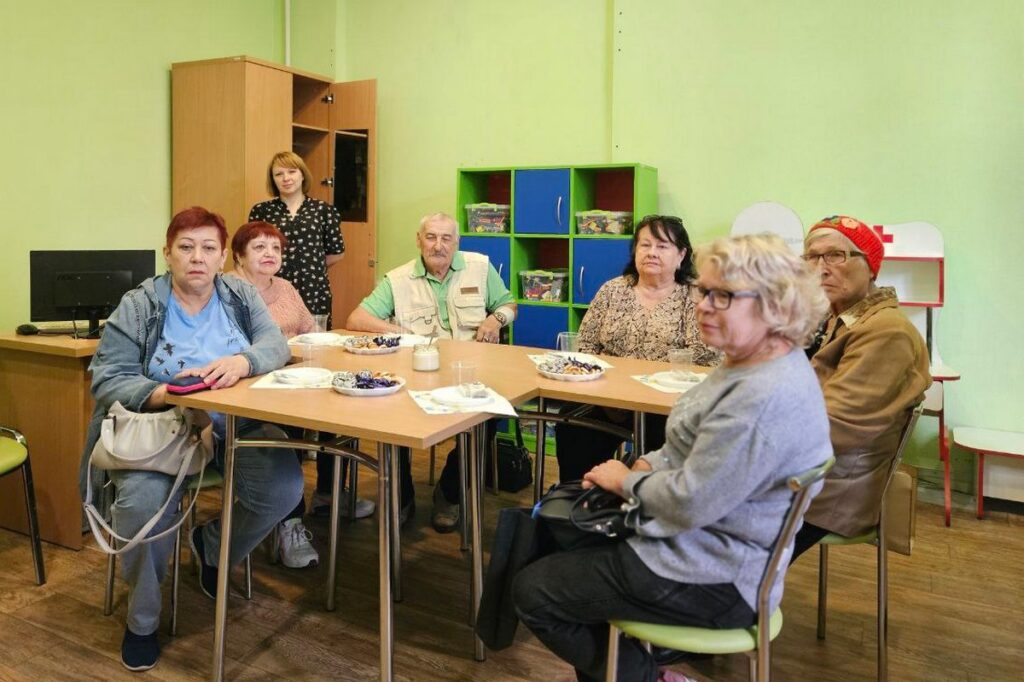
Journalists also express their sincere gratitude to international donors who support newsrooms such as Ridne Misto.
“Now there is no time to think about troubles,” says Nonna Kyrychenko. “We need to do a lot – rebuild logistics, re-establish work. Therefore, it is necessary to take care of it. We try to think about positive moments, about the fact that our newspaper will continue to find its reader, regardless of which corner of Ukraine he is in now….”
NUJU Information Service

 THE NATIONAL UNION OF
JOURNALISTS OF UKRAINE
THE NATIONAL UNION OF
JOURNALISTS OF UKRAINE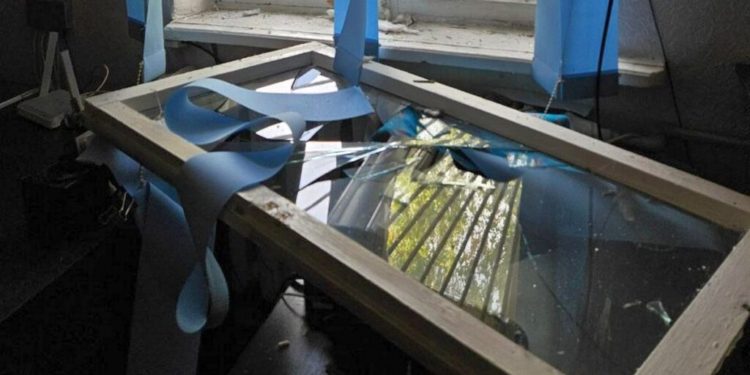
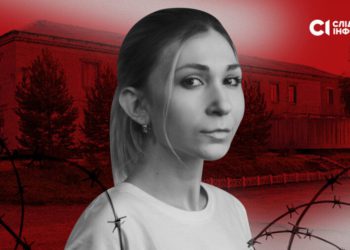















Discussion about this post